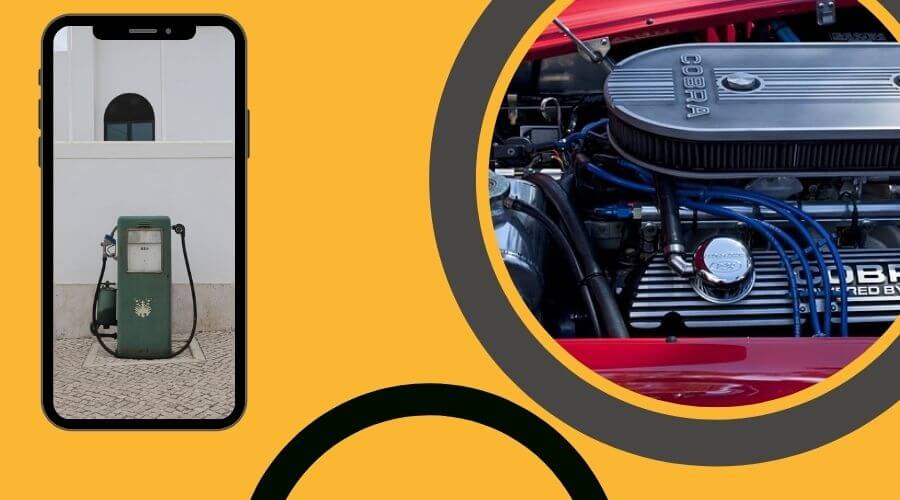When filling the vehicle with liquid, make sure the liquid is free of contaminants. Thus, all fluids in the vehicle pass through a filter before reaching their destination. Cars, for example, have oil filters, brake filters, transmission filters, and, most importantly, fuel filters to ensure cleanliness. pollution. the engine ignition system can cause engine problems. Like the rest of your car, filters tell you that they will break before they break. It is very important to recognize any signs of a fuel filter break so that it can be repaired before it becomes a complication that can cause serious mechanical problems to the vehicle. This article briefly describes fuel filters. Then label the failed fuel filter. We also cover the cost of replacing your vehicle’s fuel filter.
Contents
- 1 What is the meaning of fuel filter, and what it works?
- 2 8 Signs to know your filter is bad
- 3 Transformation in cars power in comeback to loads
- 4 Check machine bright enlightening
- 5 An unexpected machine fails
- 6 Machine obstructionist
- 7 Machine not able to start
- 8 The oil pump gets spoiled
- 9 Solid guidelines coming from the exhaust system
- 10 Important decrease in the oil budget
- 11 Assumption
- 12 How much does it cost to replace a fuel filter?
- 13 How long does a fuel filter last?
- 14 What are the symptoms of a bad fuel filter?
What is the meaning of fuel filter, and what it works?
Before we dive deeper into broken filters, it’s important to understand what fuel filters are and how they work. Understanding how filters work can help identify symptoms of bad filters. In an internal combustion engine, this system requires a certain amount of fuel to mix with air to create a controlled explosion. To maintain the correct air-fuel ratio, the fuel must be filtered to remove all contaminants and particles that could affect this ratio and the overall injection process. The fuel filter is a small area between the fuel tank and the injectors. Older cars have a fuel filter built into the fuel line. However, on newer vehicles, automakers may place the filter in the fuel tank right next to the existing connection line. When the service station removes fuel from the tank, it forces the fuel through a fuel filter, collecting small particles and contaminants in the filter. In this way, the resulting fuel is sufficiently clean and ready to enter the combustion system. Over time, various particles can clog the fuel filter and build up debris on the fuel tank walls. Depending on the type of fuel you use, you may need to change the fuel filter.
Read More: How to Fix Cracked Tires Step by Step Instruction
8 Signs to know your filter is bad
As mentioned in the previous section, dirty fuel particles and a defective fuel tank can clog the fuel tank filter. As with most auto parts, fuel filters indicate an imminent failure. Common symptoms of a defective fuel filter include:
Transformation in cars power in comeback to loads
Poor performance when driving uphill may be a sign of filter failure. When pressure is applied to a car, such as when climbing a hill or pulling hard, it needs more fuel to generate force to withstand gravity. If the filter is clogged, fuel cannot pass through the combustion system to reach the combustion system. As a result, depending on these voltages or loads, the vehicle’s performance increases exponentially.
Check machine bright enlightening
The car’s on-board computer uses engine lights to indicate car problems. Some of these problems are easy to fix, while others are complex and can lead to complete car failure. A failed filter will not turn on to remove the engine light. However, this check engine light will come on if there is a problem with the bad filter. For example, if a mechanic says the check engine light shows trouble code P0171, it could indicate a problem with the vehicle’s fuel burning, but the problem could be with the fuel filter. If the Check Engine light shows the P0174 trouble code related to an airflow sensor problem, the fuel filter may be clogged or defective. Therefore, to avoid these problems, the vehicle components, including the fuel filter, should be checked regularly.
An unexpected machine fails
A partially clogged filter will not cause the engine to fail, but if the filter is completely clogged, or if the vehicle is going uphill or carrying heavy loads, the engine will not fail and problems are more likely. When an engine fails, it is difficult to determine which cylinder is involved because additional fuel is required to support the engine when going uphill or when lifting heavy loads. Engine failures are usually caused by a combination of factors, including fuel filter problems. Again, engine failure can be caused by several issues. So, a problem with the engine is not necessarily the fuel filter itself. Before thinking about a fuel filter, it’s a good idea to rule out other factors that could prevent the engine from starting.
Machine obstructionist
In addition to power fluctuation problems, a failed fuel filter can clog the engine. The car can be started even if the filter is turned off. However, if you continue to drive and use a lot of fuel, it may stop suddenly due to insufficient fuel supply. Normally, pressing the accelerator pedal instructs the gas station to add more fuel until it reaches the combustion system and gives the engine more power to accelerate. However, if the fuel filter is clogged, the engine may stop when the accelerator pedal is depressed as fuel cannot pass through the clogged filter.
Machine not able to start
Engine failure problems can be caused by a variety of factors, including driver failure, alternator failure, spark failure, and battery discharge. Interestingly, the filter can become completely clogged and prevent the car engine from starting. This can be verified by checking the fuel gauge and monitoring the fuel in the tank. If the engine won’t start, the first thing to do is check the fuel pump. The fuel pump is responsible for pumping fuel and sending it to the combustion system. If the dispenser fails, the engine will not start. If the pump is ok, all other components are ok, and the engine still won’t start, you may have a fatal fuel filter failure.
The oil pump gets spoiled
A clogged fuel filter can put pressure on the fuel pump. This is because fuel in the fuel tank can pass through the fuel filter and into the combustion system. If the pressure is too high, the fuel pump can be completely damaged.
Solid guidelines coming from the exhaust system
A strange smell from a car is usually an indication of a problem inside an auto part. Some of these problems are easy to fix, while others are very complex and can destroy your vehicle. There are many reasons for this check, but a clogged filter can produce excess exhaust. Whatever the reason for these instructions, never ignore it and we recommend that you take your vehicle to a professional mechanic to have the problem resolved. This avoids significant or complex mechanical problems that require a lot of labor and expensive repairs.
Important decrease in the oil budget
When the fuel filter is clogged, less fuel enters the combustion system, which appears to improve fuel economy. Unfortunately, this is not true. If the fuel filter prevents fuel from entering the combustion system, the engine requires additional fuel. A fuel pump is needed to supply more fuel to the engine to produce the right amount of power. As a result, the car consumes more fuel than usual and consumes less fuel. Complex or complex mechanical problems that require a lot of effort and high repair costs.
Assumption
Liquids and engines should be lightly filtered. Cars are equipped with several filters, such as brake fuel filters, cooling filters, fuel filters and fuel filters so that the fuel entering the combustion system is not contaminated or contains large particles. Over time, the fuel filter becomes clogged and needs to be replaced for the vehicle to continue operating normally. There are many symptoms of fuel filter failure, such as fluctuations in engine output, engine overhaul, engine failure, engine failure, and engine shutdown. If the filter is partially clogged for a short time, the car can be driven. The filter fill is completely clogged and failure to observe this can result in serious engine damage. Therefore, if there are any signs of fuel filter failure, it is recommended to replace them to avoid longer and more expensive mechanical problems in the car.
FAQ
How much does it cost to replace a fuel filter?
Genuine fuel filters are inexpensive and cost between $14.00 and $60.00. However, labor costs are included in the invoice, so you can see that it is between $100 and $150. For clarity, the cost of repairing machinery can be divided into two groups: parts cost and labor cost. The portion isn’t too expensive, but where you work will determine your final bill. In other words, you can expect your dealership to pay less if you replace the fuel filter in a small shop. Some people are willing to replace the fuel filter themselves to save on expensive repairs. The idea can be smart, but be careful if you don’t have the necessary mechanical skills, as replacing a fuel filter can cost more to repair than replacing an actual filter. So, knowledge of the mechanic is the best way to decide if it’s worth replacing the fuel filter yourself or if you want the mechanic to do the job for you. Many people try DIY online. Unfortunately, this isn’t the first time the average person has learned about DIY, and you’ll probably need to change the fuel filter. So, if you don’t have the confidence and experience to change the fuel filter, it’s best to leave it to a professional and have it done by a professional mechanic.
How long does a fuel filter last?
Automotive experts recommend replacing the fuel filter every 5 years or 50,000 miles. However, many professional mechanics recommend replacing the fuel filter within 10,000 miles to avoid problems with complex combustion systems. This number may apply to many vehicles, but the best way to find out the exact details is to refer to the owner’s manual. The exact period to replace the fuel filter depends on the type, model, and year of manufacture of the new car. Also pay attention to the type of fuel used. If the filter is close to the value recommended by the vehicle manual, it can also indicate when it is time to change the filter. The vehicle owner’s manual describes the purity of the fuel and using an appropriate warranty fuel may shorten the life of the fuel filter.
What are the symptoms of a bad fuel filter?
There are signs of a fuel filter clogging, some of which are listed here. Problems starting the vehicle, frequent engine failures if not started at all, and engine failures are all indications of a dirty fuel filter.

